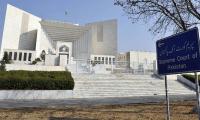Islamabad : Dr Mujeeb Afzal from the School of Politics and International Relations, Quaid-i-Azam University, has said that nationalism in India is not one nationalism as one can easily find traces of competing nationalisms in Indian society
Dr Mujeeb was speaking at a seminar on ‘India: A Hindu state?’ organised here by the Institute of Regional Studies. Maryam Mastoor, from IRS moderated the session.
Dr. Mujeeb said that it is not unusual as this philosophy is based on certain myths that emanate from cultural, ethnic, and religious sentiments. Secularism, on the other hand, he said, is just rhetoric by the elite.
He observed that while secularism is at the top in Indian society, communalism is at the bottom which is completely against modernity and interfaith harmony. He continued saying that India since 1947 is in process of defining and redefining itself and trying to build its own cognitive discourse. Today’s biggest challenge for Modi’s India is how to incorporate popular equalitarianism and modernity with Hinduism, he concluded.
Dr. Shaheen Akhtar from National Defence University said that BJP is trying to impose its own version of Hinduism that is contrasting to what India had been selling a brand of so-called “largest democracy in the world” for the last many years.
While doing so, she said, BJP actually deviated from its original manifestation that somehow accommodated minorities in India. She apprised the audience that two versions of Hindutva were practiced in India, the one is soft, and the other hard. Under the Vajpayee era, there was a kind of Soft-Hindutva, and now we are witnessing a harsh form of Hinduism in Modi’s time. She went on saying that the demographic changes in Indian illegally occupied Jammu and Kashmir, the construction of Ram Temple, treatment of the minorities, and the role of the judiciary in overall developments speak about Hindunisation of the Indian state and the society.
Dr. Asma Shakir Khawaja, also from NDU, argued that the Hindu brand is actually given by the Britishers back in the early 19th Century. While disagreeing with the secular ideology being practiced in the past, she said that India never had been a secular state. The Hindu identity is based on ‘us’ and ‘them’ mindset in which us are the Brahmans and the others are low caste Hindus. There was a continuous struggle by the Hindus to maximise their power by marginalising others, she said. It is Modi, who not only acknowledged the Hindu ideology but also turned it into a popular Hindu narrative today, she said adding that Modi created such an environment where rational voices are not audible.
Aarish U Khan from IRS said that India crossed a fine line of Soft-Hindutva and was heading towards a more rigid and introverted brand of Hinduism which is detrimental to its constitutional democracy. The BJP actually provoked the sentiments of Sikhs, Muslims, and other minorities, he said.
A representational image of young people working in a company. — AFP/FileIslamabad: The National Vocational and...
Ambassador of Kazakhstan to Pakistan, Yerzhan Kistafin speaks during a book launching ceremony. —...
Ahmed Jawad A A. Rabei, ambassador of the State of Palestine , VC Riphah University Prof. Dr Anis Ahmed and Dr...
The Department of Food Science & Technology building in the University of Karachi. — University of Karachi...
The printed papers of cigarettes can be seen in a cigarette factory. — FBR Website/FileIslamabad: Health activists...
This representational image shows an array of colourful flowers on display on December 3, 2023. — Facebook/Parks and...







